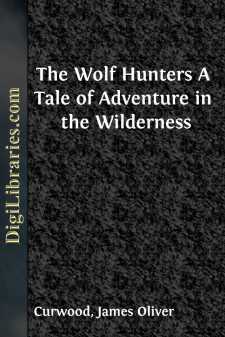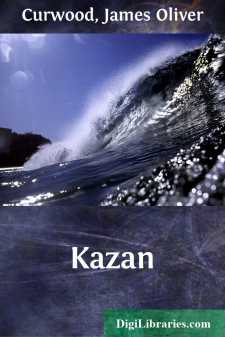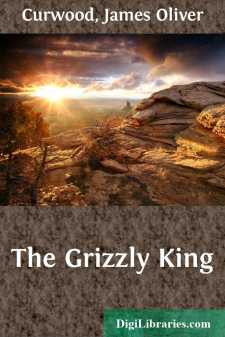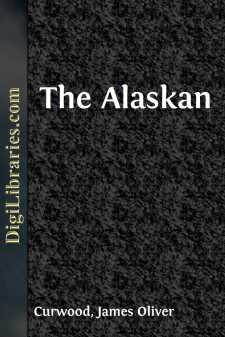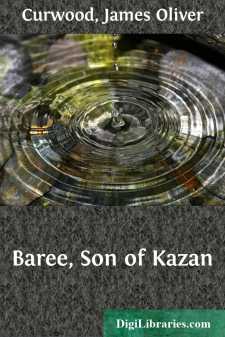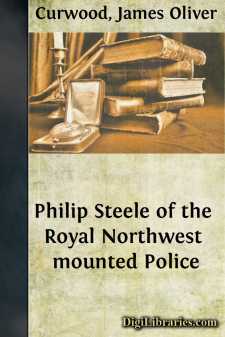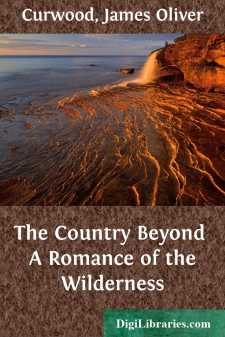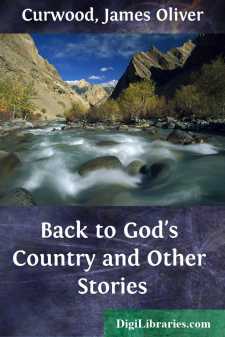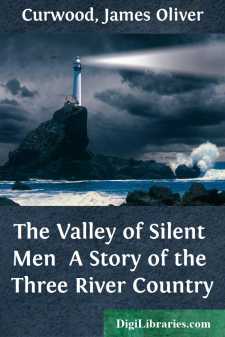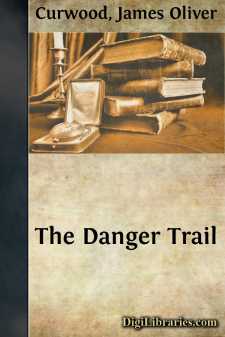Categories
- Antiques & Collectibles 13
- Architecture 36
- Art 48
- Bibles 22
- Biography & Autobiography 813
- Body, Mind & Spirit 142
- Business & Economics 28
- Children's Books 15
- Children's Fiction 12
- Computers 4
- Cooking 94
- Crafts & Hobbies 4
- Drama 346
- Education 46
- Family & Relationships 57
- Fiction 11828
- Games 19
- Gardening 17
- Health & Fitness 34
- History 1377
- House & Home 1
- Humor 147
- Juvenile Fiction 1873
- Juvenile Nonfiction 202
- Language Arts & Disciplines 88
- Law 16
- Literary Collections 686
- Literary Criticism 179
- Mathematics 13
- Medical 41
- Music 40
- Nature 179
- Non-Classifiable 1768
- Performing Arts 7
- Periodicals 1453
- Philosophy 64
- Photography 2
- Poetry 896
- Political Science 203
- Psychology 42
- Reference 154
- Religion 513
- Science 126
- Self-Help 84
- Social Science 81
- Sports & Recreation 34
- Study Aids 3
- Technology & Engineering 59
- Transportation 23
- Travel 463
- True Crime 29
The Wolf Hunters A Tale of Adventure in the Wilderness
Description:
Excerpt
CHAPTER I
THE FIGHT IN THE FOREST
Cold winter lay deep in the Canadian wilderness. Over it the moon was rising, like a red pulsating ball, lighting up the vast white silence of the night in a shimmering glow. Not a sound broke the stillness of the desolation. It was too late for the life of day, too early for the nocturnal roamings and voices of the creatures of the night. Like the basin of a great amphitheater the frozen lake lay revealed in the light of the moon and a billion stars. Beyond it rose the spruce forest, black and forbidding. Along its nearer edges stood hushed walls of tamarack, bowed in the smothering clutch of snow and ice, shut in by impenetrable gloom.
A huge white owl flitted out of this rim of blackness, then back again, and its first quavering hoot came softly, as though the mystic hour of silence had not yet passed for the night-folk. The snow of the day had ceased, hardly a breath of air stirred the ice-coated twigs of the trees. Yet it was bitter cold—so cold that a man, remaining motionless, would have frozen to death within an hour.
Suddenly there was a break in the silence, a weird, thrilling sound, like a great sigh, but not human—a sound to make one's blood run faster and fingers twitch on rifle-stock. It came from the gloom of the tamaracks. After it there fell a deeper silence than before, and the owl, like a noiseless snowflake, drifted out over the frozen lake. After a few moments it came again, more faintly than before. One versed in woodcraft would have slunk deeper into the rim of blackness, and listened, and wondered, and watched; for in the sound he would have recognized the wild, half-conquered note of a wounded beast's suffering and agony.
Slowly, with all the caution born of that day's experience, a huge bull moose walked out into the glow of the moon. His magnificent head, drooping under the weight of massive antlers, was turned inquisitively across the lake to the north. His nostrils were distended, his eyes glaring, and he left behind a trail of blood. Half a mile away he caught the edge of the spruce forest. There something told him he would find safety. A hunter would have known that he was wounded unto death as he dragged himself out into the foot-deep snow of the lake.
A dozen rods out from the tamaracks he stopped, head thrown high, long ears pitched forward, and nostrils held half to the sky. It is in this attitude that a moose listens when he hears a trout splash three-quarters of a mile away. Now there was only the vast, unending silence, broken only by the mournful hoot of the snow owl on the other side of the lake. Still the great beast stood immovable, a little pool of blood growing upon the snow under his forward legs. What was the mystery that lurked in the blackness of yonder forest? Was it danger? The keenest of human hearing would have detected nothing. Yet to those long slender ears of the bull moose, slanting beyond the heavy plates of his horns, there came a sound. The animal lifted his head still higher to the sky, sniffed to the east, to the west, and back to the shadows of the tamaracks. But it was the north that held him.
From beyond that barrier of spruce there soon came a sound that man might have heard—neither the beginning nor the end of a wail, but something like it. Minute by minute it came more clearly, now growing in volume, now almost dying away, but every instant approaching—the distant hunting call of the wolf-pack! What the hangman's noose is to the murderer, what the leveled rifles are to the condemned spy, that hunt-cry of the wolves is to the wounded animal of the forests.
Instinct taught this to the old bull. His head dropped, his huge antlers leveled themselves with his shoulders, and he set off at a slow trot toward the east. He was taking chances in thus crossing the open, but to him the spruce forest was home, and there he might find refuge. In his brute brain he reasoned that he could get there before the wolves broke cover. And then—
Again he stopped, so suddenly that his forward legs doubled under him and he pitched into the snow. This time, from the direction of the wolf-pack, there came the ringing report of a rifle! It might have been a mile or two miles away, but distance did not lessen the fear it brought to the dying king of the North. That day he had heard the same sound, and it had brought mysterious and weakening pain in his vitals. With a supreme effort he brought himself to his feet, once more sniffed into the north, the east, and the west, then turned and buried himself in the black and frozen wilderness of tamarack.
Stillness fell again with the sound of the rifle-shot. It might have lasted five minutes or ten, when a long, solitary howl floated from across the lake. It ended in the sharp, quick yelp of a wolf on the trail, and an instant later was taken up by others, until the pack was once more in full cry. Almost simultaneously a figure darted out upon the ice from the edge of the forest. A dozen paces and it paused and turned back toward the black wall of spruce.
"Are you coming, Wabi?"
A voice answered from the woods. "Yes. Hurry up—run!"
Thus urged, the other turned his face once more across the lake. He was a youth of not more than eighteen. In his right hand he carried a club. His left arm, as if badly injured, was done up in a sling improvised from a lumberman's heavy scarf. His face was scratched and bleeding, and his whole appearance showed that he was nearing complete exhaustion. For a few moments he ran through the snow, then halted to a staggering walk. His breath came in painful gasps. The club slipped from his nerveless fingers, and conscious of the deathly weakness that was overcoming him he did not attempt to regain it. Foot by foot he struggled on, until suddenly his knees gave way under him and he sank down into the snow.
From the edge of the spruce forest a young Indian now ran out upon the surface of the lake. His breath was coming quickly, but with excitement rather than fatigue. Behind him, less than half a mile away, he could hear the rapidly approaching cry of the hunt-pack, and for an instant he bent his lithe form close to the snow, measuring with the acuteness of his race the distance of the pursuers. Then he looked for his white companion, and failed to see the motionless blot that marked where the other had fallen. A look of alarm shot into his eyes, and resting his rifle between his knees he placed his hands, trumpet fashion, to his mouth and gave a signal call which, on a still night like this, carried for a mile.
"Wa-hoo-o-o-o-o-o! Wa-hoo-o-o-o-o-o!"
At that cry the exhausted boy in the snow staggered to his feet, and with an answering shout which came but faintly to the ears of the Indian, resumed his flight across the lake. Two or three minutes later Wabi came up beside him.
"Can you make it, Rod?" he cried.
The other made an effort to answer, but his reply was hardly more than a gasp. Before Wabi could reach out to support him he had lost his little remaining strength and fallen for a second time into the snow.
"I'm afraid—I—can't do it—Wabi," he whispered. "I'm—bushed—"
The young Indian dropped his rifle and knelt beside the wounded boy, supporting his head against his own heaving shoulders.
"It's only a little farther, Rod," he urged. "We can make it, and take to a tree. We ought to have taken to a tree back there, but I didn't know that you were so far gone; and there was a good chance to make camp, with three cartridges left for the open lake."
"Only three!"
"That's all, but I ought to make two of them count in this light. Here, take hold of my shoulders! Quick!"
He doubled himself like a jack-knife in front of his half-prostrate companion. From behind them there came a sudden chorus of the wolves, louder and clearer than before.
"They've hit the open and we'll have them on the lake inside of two minutes," he cried. "Give me your arms, Rod! There! Can you hold the gun?"
He straightened himself, staggering under the other's weight, and set off on a half-trot for the distant tamaracks. Every muscle in his powerful young body was strained to its utmost tension. Even more fully than his helpless burden did he realize the peril at their backs.
Three minutes, four minutes more, and then—
A terrible picture burned in Wabi's brain, a picture he had carried from boyhood of another child, torn and mangled before his very eyes by these outlaws of the North, and he shuddered. Unless he sped those three remaining bullets true, unless that rim of tamaracks was reached in time, he knew what their fate would be. There flashed into his mind one last resource. He might drop his wounded companion and find safety for himself. But it was a thought that made Wabi smile grimly. This was not the first time that these two had risked their lives together, and that very day Roderick had fought valiantly for the other, and had been the one to suffer. If they died, it would be in company. Wabi made up his mind to that and clutched the other's arms in a firmer grip. He was pretty certain that death faced them both. They might escape the wolves, but the refuge of a tree, with the voracious pack on guard below, meant only a more painless end by cold. Still, while there was life there was hope, and he hurried on through the snow, listening for the wolves behind him and with each moment feeling more keenly that his own powers of endurance were rapidly reaching an end.
For some reason that Wabi could not explain the hunt-pack had ceased to give tongue. Not only the allotted two minutes, but five of them, passed without the appearance of the animals on the lake. Was it possible that they! had lost the trail? Then it occurred to the Indian that perhaps he had wounded one of the pursuers, and that the others, discovering his injury, had set upon him and were now participating in one of the cannibalistic feasts that had saved them thus far. Hardly had he thought of this possibility when he was thrilled by a series of long howls, and looking back he discerned a dozen or more dark objects moving swiftly over their trail.
Not an eighth of a mile ahead was the tamarack forest. Surely Rod could travel that distance!
"Run for it, Rod!" he cried. "You're rested now. I'll stay here and stop 'em!"
He loosened the other's arms, and as he did so his rifle fell from the white boy's nerveless grip and buried itself in the snow. As he relieved himself of his burden he saw for the first time the deathly pallor and partly closed eyes of his companion. With a new terror filling his own faithful heart he knelt beside the form which lay so limp and lifeless, his blazing eyes traveling from the ghastly face to the oncoming wolves, his rifle ready in his hands. He could now discern the wolves trailing out from the spruce forest like ants. A dozen of them were almost within rifle-shot. Wabi knew that it was with this vanguard of the pack that he must deal if he succeeded in stopping the scores behind. Nearer and nearer he allowed them to come, until the first were scarce two hundred feet away. Then, with a sudden shout, the Indian leaped to his feet and dashed fearlessly toward them. This unexpected move, as he had intended, stopped the foremost wolves in a huddled group for an instant, and in this opportune moment Wabi leveled his gun and fired. A long howl of pain testified to the effect of the shot. Hardly had it begun when Wabi fired again, this time with such deadly precision that one of the wolves, springing high into the air, tumbled back lifeless among the pack without so much as making a sound.
Running to the prostrate Roderick, Wabi drew him quickly upon his back, clutched his rifle in the grip of his arm, and started again for the tamaracks. Only once did he look back, and then he saw the wolves gathering in a snarling, fighting crowd about their slaughtered comrades. Not until he had reached the shelter of the tamaracks did the Indian youth lay down his burden, and then in his own exhaustion he fell prone upon the snow, his black eyes fixed cautiously upon the feasting pack. A few minutes later he discerned dark spots appearing here and there upon the whiteness of the snow, and at these signs of the termination of the feast he climbed up into the low branches of a spruce and drew Roderick after him. Not until then did the wounded boy show visible signs of life. Slowly he recovered from the faintness which had overpowered him, and after a little, with some assistance from Wabi, was able to place himself safely on a higher limb.
"That's the second time, Wabi," he said, reaching a hand down affectionately to the other's shoulder. "Once from drowning, once from the wolves. I've got a lot to even up with you!"
"Not after what happened to-day!"
The Indian's dusky face was raised until the two were looking into each other's eyes, with a gaze of love, and trust. Only a moment thus, and instinctively their glance turned toward the lake. The wolf-pack was in plain view. It was the biggest pack that Wabi, in all his life in the wilderness, had ever seen, and he mentally figured that there were at least half a hundred animals in it. Like ravenous dogs after having a few scraps of meat flung among them, the wolves were running about, nosing here and there, as if hoping to find a morsel that might have escaped discovery. Then one of them stopped on the trail and, throwing himself half on his haunches, with his head turned to the sky like a baying hound, started the hunt-cry.
"There's two packs. I thought it was too big for one," exclaimed the Indian. "See! Part of them are taking up the trail and the others are lagging behind gnawing the bones of the dead wolf. Now if we only had our ammunition and the other gun those murderers got away from us, we'd make a fortune. What—"
Wabi stopped with a suddenness that spoke volumes, and the supporting arm that he had thrown around Rod's waist tightened until it caused the wounded youth to flinch. Both boys stared in rigid silence. The wolves were crowding around a spot in the snow half-way between the tamarack refuge and the scene of the recent feast. The starved animals betrayed unusual excitement. They had struck the pool of blood and red trail made by the dying moose!
"What is it, Wabi?" whispered Rod.
The Indian did not answer. His black eyes gleamed with a new fire, his lips were parted in anxious anticipation, and he seemed hardly to breathe in his tense interest. The wounded boy repeated his question, and as if in reply the pack swerved to the west and in a black silent mass swept in a direction that would bring them into the tamaracks a hundred yards from the young hunters.
"A new trail!" breathed Wabi. "A new trail, and a hot one! Listen! They make no sound. It is always that way when they are close to a kill!"
As they looked the last of the wolves disappeared in the forest. For a few moments there was silence, then a chorus of howls came from deep in the woods behind them.
"Now is our chance," cried the Indian. "They've broken again, and their game—"
He had partly slipped from his limb, withdrawing his supporting arm from Rod's waist, and was about to descend to the ground when the pack again turned in their direction. A heavy crashing in the underbrush not a dozen rods away sent Wabi in a hurried scramble for his perch.
"Quick—higher up!" he warned excitedly. "They're coming out here—right under us! If we can get up so that they can't see us, or smell us—"
The words were scarcely out of his mouth when a huge shadowy bulk rushed past them not more than fifty feet from the spruce in which they had sought refuge. Both of the boys recognized it as a bull moose, though it did not occur to either of them that it was the same animal at which Wabi had taken a long shot that same day a couple of miles back. In close pursuit came the ravenous pack. Their heads hung close to the bloody trail, hungry, snarling cries coming from between their gaping jaws, they swept across the little opening almost at the young hunters' feet. It was a sight which Rod had never expected to see, and one which held even the more experienced Wabi fascinated. Not a sound fell from either of the youths' lips as they stared down upon the fierce, hungry outlaws of the wilderness. To Wabi this near view of the pack told a fateful story; to Rod it meant nothing more than the tragedy about to be enacted before his eyes. The Indian's keen vision saw in the white moonlight long, thin bodies, starved almost to skin and bone; to his companion the onrushing pack seemed filled only with agile, powerful beasts, maddened to almost fiendish exertions by the nearness of their prey.
In a flash they were gone, but in that moment of their passing there was painted a picture to endure a lifetime in the memory of Roderick Drew. And it was to be followed by one even more tragic, even more thrilling. To the dazed, half-fainting young hunter it seemed but another instant before the pack overhauled the old bull. He saw the doomed monster turn, in the stillness heard the snapping of jaws, the snarling of hunger-crazed animals, and a sound that might have been a great, heaving moan or a dying bellow. In Wabi's veins the blood danced with the excitement that stirred his forefathers to battle. Not a line of the tragedy that was being enacted before his eyes escaped this native son of the wilderness. It was a magnificent fight! He knew that the old bull would die by inches in the one-sided duel, and that when it was over there would be more than one carcass for the survivors to gorge themselves upon. Quietly he reached up and touched his companion.
"Now is our time," he said. "Come on—still—and on this side of the tree!"
He slipped down, foot by foot, assisting Rod as he did so, and when both had reached the ground he bent over as before, that the other might get upon his back.
"I can make it alone, Wabi," whispered the wounded boy. "Give me a lift on the arm, will you?"
With the Indian's arm about his waist, the two set off into the tamaracks. Fifteen minutes later they came to the bank of a small frozen river. On the opposite side of this, a hundred yards down, was a sight which both, as if by a common impulse, welcomed with a glad cry. Close to the shore, sheltered by a dense growth of spruce, was a bright camp-fire. In response to Wabi's far-reaching whoop a shadowy figure appeared in the glow and returned the shout.
"Mukoki!" cried the Indian.
"Mukoki!" laughed Rod, happy that the end was near.
Even as he spoke he swayed dizzily, and Wabi dropped his gun that he might keep his companion from falling into the snow.
CHAPTER II
HOW WABIGOON BECAME A WHITE MAN
Had the young hunters the power of looking into the future, their camp-fire that night on the frozen Ombabika might have been one of their last, and a few days later would have seen them back on the edges of civilization. Possibly, could they have foreseen the happy culmination of the adventures that lay before them, they would still have gone on, for the love of excitement is strong in the heart of robust youth. But this power of discernment was denied them, and only in after years, with the loved ones of their own firesides close about them, was the whole picture revealed. And in those days, when they would gather with their families about the roaring logs of winter and live over again their early youth, they knew that all the gold in the world would not induce them to part with their memories of the life that had gone before.


